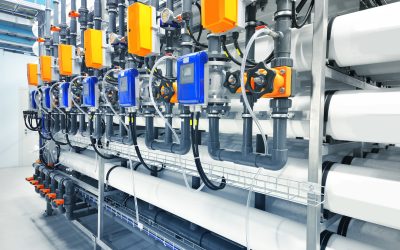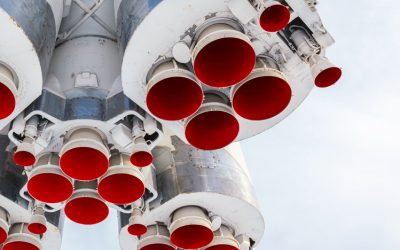Chiller systems are vital for maintaining comfortable and efficient temperatures in a wide range of commercial and industrial environments. These systems are designed to remove heat from a process or structure, transfer it to water, and then chill the water with a cooling tower or other heat exchange device. Businesses may make better cooling decisions if they understand how these systems work, their benefits, and their applications.
How Water Cooled Chillers Operate
A water cooled chiller system operates on a refrigeration cycle, which consists of four simple components: the evaporator, compressor, condenser, and expansion valve. Initially, the refrigerant enters the evaporator and absorbs heat from the water or fluid to be cooled. As the refrigerant absorbs heat, it evaporates and turns into gas. It compresses the gas, increasing the temperature and pressure. This high-pressure gas then travels to the condenser, where it transfers the absorbed heat to the water that circulates throughout the system. A cooling tower or heat exchanger then cools the water, allowing it to return to the evaporator to complete the cycle.
Advantages of Water-Cooled Chiller Systems
Water-cooled chillers offer numerous benefits, making them an enticing option for a wide range of applications. One of the primary advantages is their efficiency. These chillers consume less energy than air-cooled systems, lowering utility costs. This energy efficiency is especially beneficial for large-scale organizations with considerable cooling needs. These systems are often more durable and last longer than their air-cooled equivalents. Because they use water as a cooling medium, they are less sensitive to ambient temperature fluctuations and can work consistently under many settings. This resilience might result in cheaper maintenance costs and a longer operating life. Water-cooled chillers are known to be quieter than air-cooled systems. The lowered noise creates a more comfortable environment for both inhabitants and employees.
Applications and Considerations
Water-cooled chillers are widely utilized in many industries, including manufacturing, commercial buildings, and data centers. In manufacturing, these chillers help manage temperatures for high-heat processes, ensuring product quality and operating efficiency. They keep occupants comfortable within business buildings while also improving energy efficiency. Data centers, which hold sensitive electronic equipment, rely largely on these systems to control heat loads. Keeping servers cool is critical for avoiding equipment failure and ensuring peak performance. As technology advances, the necessity for effective cooling solutions in these facilities will only grow. Correct sizing and design are critical for achieving peak performance and energy efficiency. Consulting with HVAC professionals may help businesses navigate these decisions and select the best system for their needs. Cooling systems are critical components of modern HVAC systems, ensuring efficiency, longevity, and versatility. Businesses can make informed decisions to improve their cooling capacities while lowering energy costs by understanding how these systems work, as well as their benefits and numerous uses. As the demand for energy-efficient technology rises, chillers will continue to play a valuable role in keeping environments comfortable and productive across a wide range of sectors.


